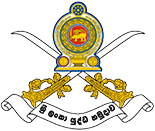 AS many as half of Sri Lankans seeking asylum in Australia are suspected of being former fighters, operatives or supporters of the Tamil Tigers.
AS many as half of Sri Lankans seeking asylum in Australia are suspected of being former fighters, operatives or supporters of the Tamil Tigers.
The Tigers have been designated a terrorist organisation in many countries but not in Australia.
Sri Lankan officials estimate that between 25 and 50 per cent of Tamils fleeing to Australia have connections to the defeated Liberation Tigers of Tamil Eelam (LTTE).
Defence analyst Sergei DeSilva-Ranasinghe said that during a recent visit to Sri Lanka, two government ministers and several other officials, including Catholic Church staff with deep ties in the Tamil community, told him 25 per cent was at the lower end of their estimates.
"The people I spoke to constantly said 50 per cent," he told The Australian.
Mr DeSilva-Ranasinghe says former Tamil Tiger members are attracted to Australia because the LTTE remains legal here, unlike in the US, Canada, Britain and 27 EU member countries, where it is proscribed as a terrorist organisation.
He said this was an anomaly that should be rectified by Canberra adding the LTTE to its list of banned terrorist groups.
"You’ve got people here who’ve essentially been radicalised, who’ve fought and (may have) committed acts of terrorism, and they’ve come here without any sense of being rehabilitated," he said.
Since the surge in boat arrivals started in late 2008, 1100 Sri Lankan asylum-seekers have arrived in Australia. Of these 325 have been granted visas, 85 have returned and the rest are in detention.
Last week Julia Gillard lifted the freeze on processing Sri Lankan asylum applications, after the UN High Commissioner for Refugees issued new guidelines on the handling of Tamil claims.
The UN said that improvements in the security situation in Sri Lanka since the 26-year civil war ended in May last year meant there was no need to provide automatic protection to Sri Lankans leaving the country. Rather, it said, their claims should be assessed on a case-by-case basis.
However, the new UN guidelines say individuals deemed to be at risk in their homeland require "a particularly careful examination" of their asylum claims.
Those classified among the UNHCR’s "potential risk profiles" include "persons suspected of having links with the LTTE".
Mr DeSilva-Ranasinghe says the UN’s recommendation that Tamil Tiger fighters be given refuge is "ridiculous".
"They wouldn’t say that for al-Qa’ida, and in my view there is no difference between the Tamil Tigers and al-Qa’ida. If anything, the Tamil Tigers are a far more ruthless organisation than al-Qa’ida," he said.
However, Clive Williams, head of terrorism studies at the Australian National University, says there is no compelling case to ban the LTTE in Australia.
"They’ve never done anything here except collecting money and they’ve never posed a threat to Australia. I don’t know of anything they’ve done that would warrant it," Professor Williams said.
Mr De Silva Ranasinghe says LTTE supporters in Australia act as fundraisers for the group.
In March three Tamil Australians in Melbourne pleaded guilty to sending more than $1 million and $97,000 worth of electronic components capable of being made into bomb detonators to the LTTE. "There’s an element in the Tamil Tigers that is trying to revive (its use of) terrorism. So the question for Australia is whether it’s in Australia’s interests for LTTE terrorism to be revived, and whether these fundraising activities will contribute to that."
The US State Department, which listed the LTTE as a terrorist group in October 2001, says: "The Tigers have integrated a battlefield insurgent strategy with a terrorist programme that targets not only key personnel in the countryside but also senior Sri Lankan political and military leaders in Colombo and other urban centres.
"The Tigers are most notorious for their cadre of suicide bombers, the Black Tigers. Political assassinations and bombings are commonplace."
The FBI describes the Tigers as "among the most dangerous and deadly extremists in the world" and says their "ruthless tactics" have inspired terrorist networks worldwide, including al-Qa’ida in Iraq. It says the LTTE uses its supporters in countries such as the US to raise funds and buy weapons and explosives. (The Australian) (Courtesy: The Island)

